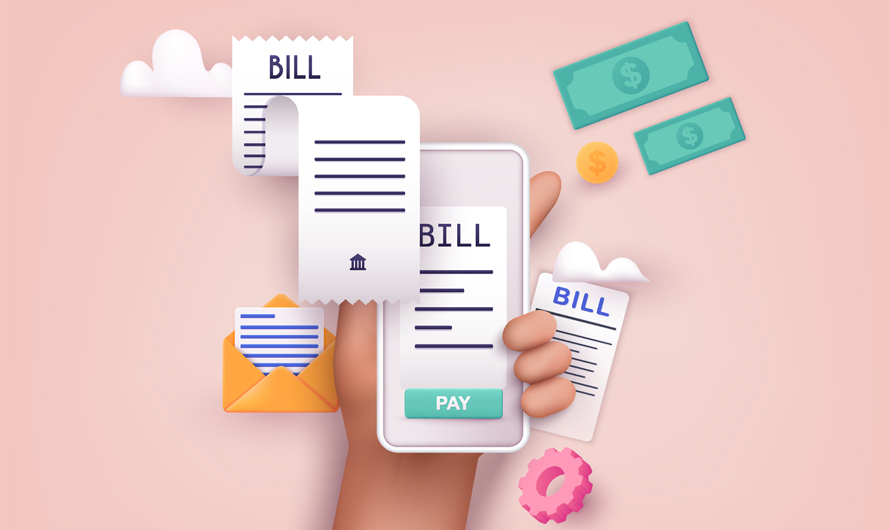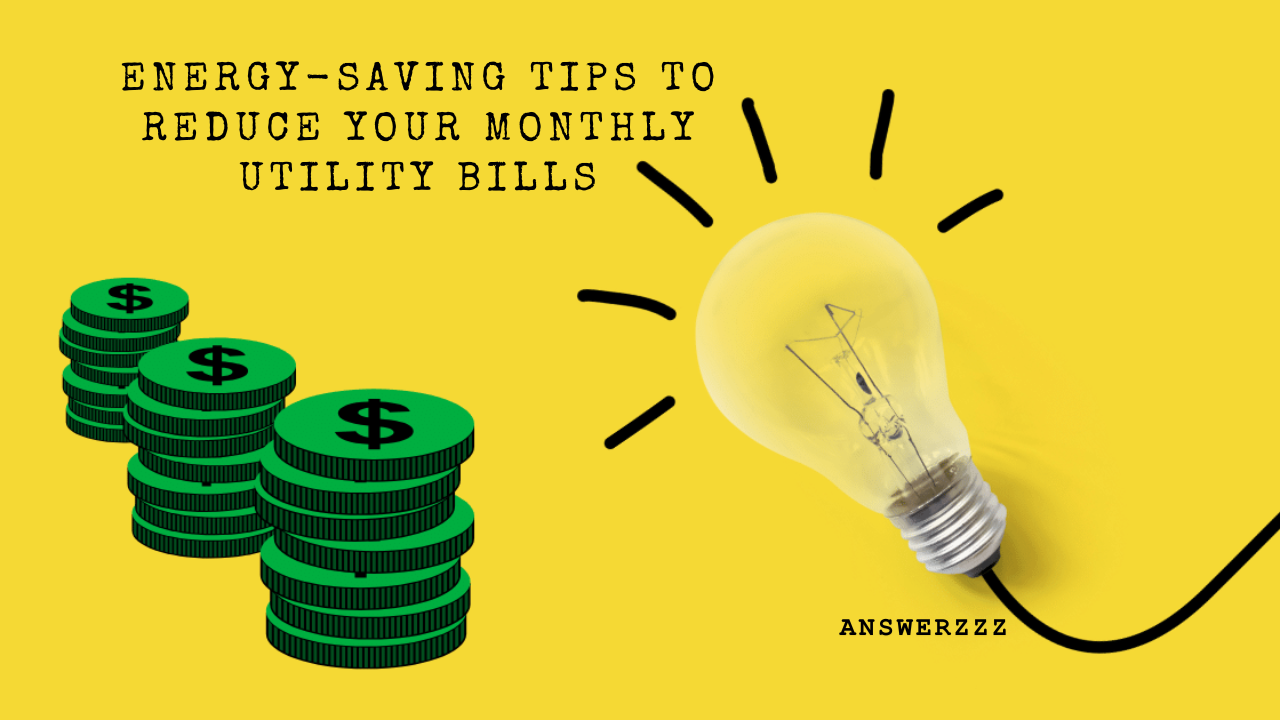As the cost of energy continues to rise, finding ways to save on monthly utility bills is more important than ever. Implementing energy-saving strategies not only reduces expenses but also benefits the environment. This guide offers practical tips for saving energy in your home, focusing on various areas, including heating, cooling, appliances, lighting, and more.
Understanding Your Utility Bills

Before diving into energy-saving tips, it’s crucial to understand your utility bills. They typically consist of charges for electricity, gas, water, and waste removal. Here’s a brief breakdown of how these costs accumulate:
- Electricity Costs: This is usually the largest portion of your bill. It covers lighting, appliances, heating, and cooling.
- Gas Costs: If you use natural gas for heating or cooking, this charge will contribute significantly to your total.
- Water Costs: Often overlooked, water usage can add up, especially if you have leaks or inefficient fixtures.
- Waste Removal: This is generally a fixed charge, but it can vary based on the volume of waste produced.
Understanding your bills can help you identify areas where you can cut back. Look at your previous months’ bills to identify patterns and high-usage times.
Heating and Cooling Efficiency
1. Optimize Your Thermostat Settings
One of the most effective ways to save on heating and cooling costs is by optimizing your thermostat.
- Adjust Your Thermostat: Set your thermostat to a lower temperature in winter (around 68°F) and a higher temperature in summer (around 78°F). For every degree you adjust, you can save about 3% on your energy bill.
- Use Programmable Thermostats: These devices allow you to set different temperatures for different times of the day, ensuring your home is only heated or cooled when you need it.
- Consider Smart Thermostats: These advanced devices learn your schedule and can optimize heating and cooling automatically, saving you even more.
Tips for Boosting Your Creativity and Thinking Outside the Box
2. Seal and Insulate Your Home
Heat loss in winter and heat gain in summer can significantly impact your energy bills.
- Check for Drafts: Inspect windows, doors, and other openings for drafts. Use weatherstripping or caulk to seal any leaks.
- Insulate Attics and Basements: Proper insulation can help keep your home at a consistent temperature. Insulate your attic, walls, and basement to reduce heating and cooling costs.
- Use Insulated Curtains: Heavy, insulated curtains can help retain heat during winter and block heat during summer.
3. Regular HVAC Maintenance
Keeping your heating and cooling systems in good working order can enhance their efficiency.
- Change Filters Regularly: Dirty filters can restrict airflow, making your system work harder. Change or clean filters every 1-3 months, depending on usage.
- Schedule Annual Inspections: Hire a professional to inspect and service your heating and cooling systems at least once a year to ensure they are operating efficiently.
4. Utilize Ceiling Fans
Ceiling fans can help distribute air evenly throughout your home.
- Use Ceiling Fans Wisely: In winter, run your ceiling fan clockwise to push warm air down. In summer, run it counterclockwise to create a cooling breeze. This can allow you to set your thermostat a few degrees higher without sacrificing comfort.
Efficient Use of Appliances

5. Upgrade to Energy-Efficient Appliances
If your appliances are old or outdated, consider upgrading to energy-efficient models.
- Look for the Energy Star Label: Appliances with the Energy Star label are certified to use less energy, which can lead to significant savings over time.
- Research Appliance Efficiency: Before purchasing, research the estimated energy usage and costs of new appliances. This can help you choose the most efficient options.
6. Practice Efficient Cooking Habits
The kitchen can be a significant source of energy consumption.
- Use the Right Size Burner: Match the size of your cookware to the burner to maximize heat transfer. Using a small pot on a large burner wastes energy.
- Cover Pots and Pans: Covering pots and pans while cooking can help retain heat, allowing you to cook at lower temperatures.
- Utilize Microwave and Slow Cookers: These appliances typically use less energy than conventional ovens.
7. Optimize Laundry Practices
Laundry is another area where you can save energy.
- Wash with Cold Water: Most of the energy used in washing clothes goes to heating the water. Switching to cold water can save you a significant amount on your utility bills.
- Dry Efficiently: If possible, hang your clothes to dry instead of using a dryer. If you must use a dryer, clean the lint filter before each load to improve efficiency.
- Full Loads Only: Always run full loads in both the washer and dryer to maximize energy use.
Budgeting for Beginners: How to Take Control of Your Finances
Smart Lighting Solutions
8. Switch to LED Bulbs
Lighting can account for a significant portion of your electricity bill.
- Use LED Bulbs: LED bulbs use up to 80% less energy than incandescent bulbs and last significantly longer. This change can lead to substantial savings over time.
- Install Dimmer Switches: Dimmer switches allow you to adjust the brightness of your lights, reducing energy usage.
9. Maximize Natural Light
Using natural light can help reduce reliance on artificial lighting.
- Keep Windows Clean: Clean windows allow more natural light into your home.
- Use Light Colors: Decorate with light colours to reflect more light within your home.
10. Implement Smart Lighting Controls
Consider investing in smart lighting systems that allow for better control over your home’s lighting.
- Use Motion Sensors: Motion sensors can turn lights on and off automatically when you enter or leave a room.
- Set Timers: Timers can ensure lights are only on when needed, reducing energy waste.
Water Heating Efficiency
11. Lower Water Heater Temperature

Adjusting your water heater can lead to energy savings.
- Set the Temperature to 120°F: Most water heaters come set to 140°F, which can be unnecessarily hot. Lowering it to 120°F can save energy and prevent scalding.
12. Insulate Your Water Heater
Insulating your water heater can help retain heat, making it more efficient.
- Use a Water Heater Blanket: This inexpensive addition can reduce heat loss and save energy.
13. Take Shorter Showers
Reducing the time spent in the shower can lead to noticeable savings on your water heating costs.
- Install Low-Flow Showerheads: These fixtures reduce the amount of water used without sacrificing water pressure, saving both water and energy.
Miscellaneous Tips
14. Consider Solar Energy
If you’re looking for a long-term investment, consider solar energy.
- Install Solar Panels: While the initial investment can be high, solar panels can lead to significant savings over time and may even eliminate your electricity bill.
- Explore Incentives and Rebates: Many states offer incentives for installing solar panels, making the initial investment more affordable.
15. Monitor Your Energy Usage
Keep track of your energy consumption to identify trends and areas for improvement.
- Use Smart Meters: Many utility companies offer smart meters that provide real-time data on your energy usage, helping you understand when and where you use the most energy.
- Track Monthly Usage: Regularly review your utility bills to identify spikes in usage and take corrective measures.
16. Educate Your Household
Make energy-saving a family affair by educating everyone in your household about the importance of energy conservation.
- Set Goals Together: Establish household energy-saving goals and track your progress as a family.
- Create Habits: Encourage energy-saving habits, such as turning off lights when leaving a room, unplugging chargers when not in use, and using natural light whenever possible.
17. Reduce Phantom Loads
Phantom loads are the energy consumed by devices when they are plugged in but not in use.
- Unplug Devices: Unplug chargers, appliances, and electronics when not in use to eliminate phantom energy consumption.
- Use Power Strips: Plug multiple devices into a power strip and turn it off when not in use to cut power to several devices at once.
18. Consider Energy Audits
A professional energy audit can provide a detailed assessment of your home’s energy use.
- Hire a Professional: A professional can identify areas of improvement that you might not have noticed.
- DIY Audits: You can also perform a basic energy audit yourself by checking for drafts, evaluating insulation, and examining appliance efficiency.

Reducing your monthly utility bills is achievable through various energy-saving strategies. From optimizing your heating and cooling systems to adopting efficient appliance use and lighting solutions, there are many ways to cut costs. Implementing these tips can not only help you save money but also contribute to a more sustainable lifestyle. Start with a few changes today, and gradually incorporate more strategies to maximize your savings and create a more energy-efficient home. By taking these steps, you’ll not only lower your bills but also make a positive impact on the environment.



